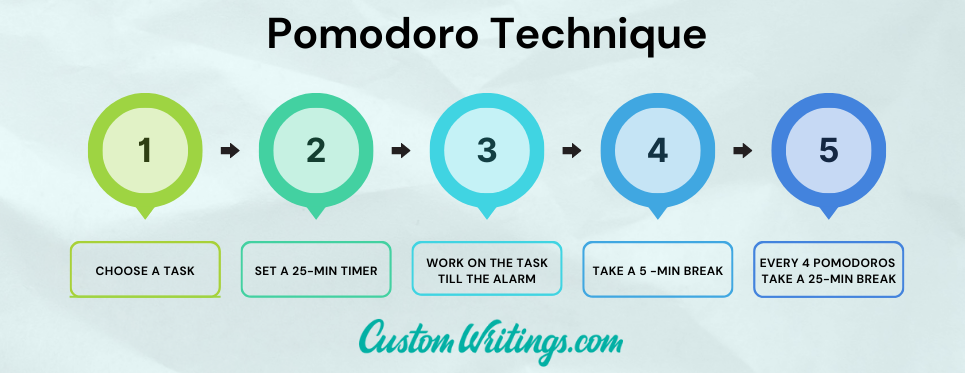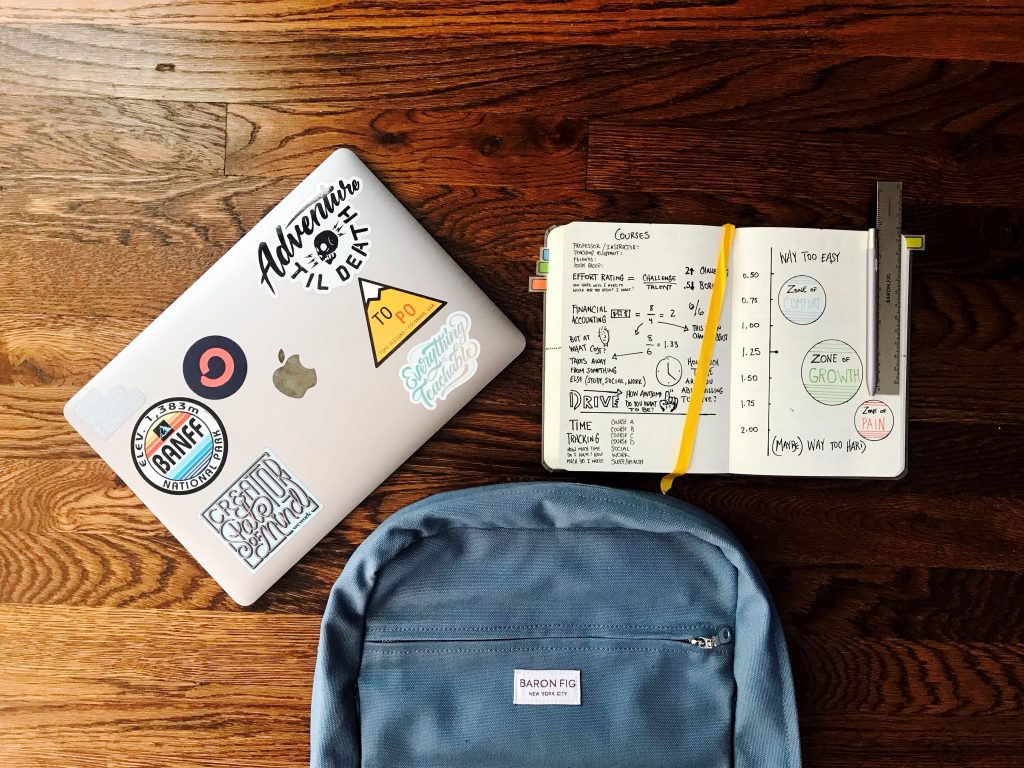As the semester kicks off, college students everywhere find themselves grappling with a heavy academic load, often feeling overwhelmed and stressed by the sheer volume of material they need to master.
The pressure to excel can affect their mental and emotional well-being. But what if we told you there’s a more efficient, less strenuous way to approach your studies?
Studying doesn’t have to be hard; it should be effective.
So, buckle up and prepare to be surprised by the easy ways to study this semester to help you conquer your academic challenges without burning out.
Make a Study Plan
Having a study plan is essential for getting the most out of your study session. You don’t need an hour-by-hour schedule, but you do need a strategy.
First, write down the topics to be covered and how long you’ll spend on each one. Then, set a timeline for completion. It will help you stay focused and motivated, so you don’t feel like you’re wasting time.
A survey by the National Education Association found that 70% of teachers concur that having a well-organized and consistent schedule contributes to students’ academic advancement. This college study skill ensures that crucial subjects and activities receive ample attention and time while less critical ones are not overlooked.
Set Goals
Setting goals is one of the most effective study techniques because it gives you a sense of purpose and direction. In addition, creating realistic, achievable goals will help make your study plan more productive. As you set each goal, ask yourself: Is it challenging yet achievable? Will it help me reach my desired outcome?
Research conducted at Dominican University revealed that individuals who establish objectives have a 43% higher likelihood of accomplishing them.
Utilize Digital Tools
Digital tools like note-taking apps, online libraries, and flashcards have become popular among study strategies for students to help make studying easier.
These tools can be downloaded and used anywhere, anytime, providing you with access to the resources you need when you need them.
A survey found that nearly 50% of college students use at least one type of digital tool while studying.
Take Breaks
Taking regular breaks can help increase focus and concentration during long study sessions, making it one of the most popular ways to learn.
For example, in an experiment conducted with college students, it was found that those who took short breaks every 25 minutes achieved higher test scores than those who only studied for longer periods without any breaks.
This technique allows time for your brain to process and store the information received, enabling you to return to it with renewed focus.
Study in Short Bursts
Rather than spending hours cramming for exams or writing essays all at once, break up your work into shorter chunks spread out over several days or weeks if possible — especially if it’s a large project like a report or presentation.
This method has often proven more effective than trying to do everything in one day or night before the deadline due to the absence of fatigue caused by extended periods of study time without breaks, as mentioned above.
One research demonstrated that learners who allow their brains adequate time to process information not only retain more knowledge through innate neural mechanisms common to all humans, but also benefit from spaced learning to achieve better test scores. These students scored up to 13% higher than those in instructor-led environments and 19% higher than self-directed learners.
Reward Yourself When You Reach Milestones
Rewarding yourself with small treats after completing smaller parts of the project can be a great motivator and one of the good study habits you can practice to get things done faster and more effectively.
For example, take 5 minutes off between each task or plan something fun after completing part of the project, such as going out for lunch with friends, etc.
The act of rewarding oneself encourages students to continue working towards their goals because they are able to anticipate the reward at the end, which makes tasks seem less daunting overall.
Make Good Use of the Resources Available
Libraries, tutorials from websites or Youtube channels, and student forums can be useful resources and the best way to learn for understanding new concepts or finding answers to difficult questions related to our studies.
In 2018, a Pew Research study examined 4,594 Americans and determined that 51% of YouTube users rely on the platform to gain knowledge.
These resources often provide step-by-step explanations, making it easier for students to grasp concepts quickly than they would reading texts from textbooks, which may not always provide sufficient clarity.
Apart from that, they are also likely to find explanations suitable for their level, whether it’s basic, elementary knowledge or higher-level understanding.
Use Visualization Techniques
Visualizing information makes it easier to remember data better — drawing diagrams, flowcharts, and creating mind maps are some ways this can be accomplished.
Students may also utilize visual cues like different colored pens/pencils/markers when recording notes as opposed to keeping just plain black/ white text. Hence, each topic stands out easily, making them simpler to recall and making it the best way to study for a test.
Get Proper Sleep
Sleep deprivation affects cognitive abilities and physical capability, including memory and concentration, directly impacting how well students perform during different types of studying.
Numerous studies have demonstrated the importance of getting 8 hours of sleep to ensure optimal functioning during the following day’s activities.
This is because inadequate rest results in a significant drop in dopamine and serotonin levels, leading to decreased alertness and negatively impacting decision-making abilities.
These factors affect one’s capacity to study smarter and overall performance. Therefore, it’s crucial to take breaks and get enough sleep to stay refreshed and prepared for any challenges that may arise.
Bottom Line
From breaking tasks into smaller chunks to visualizing information, using resources available and getting proper sleep, students can effectively manage their studies to make the most of the time available while ensuring they are in a good state to perform their best.
It is important to note that each person is different, and some study tips may work better than others, so it’s a good idea to experiment until you find the best fit.
Follow the tips outlined above to create a study plan that best suits your needs and helps maximize your learning efficiency. Good luck!






